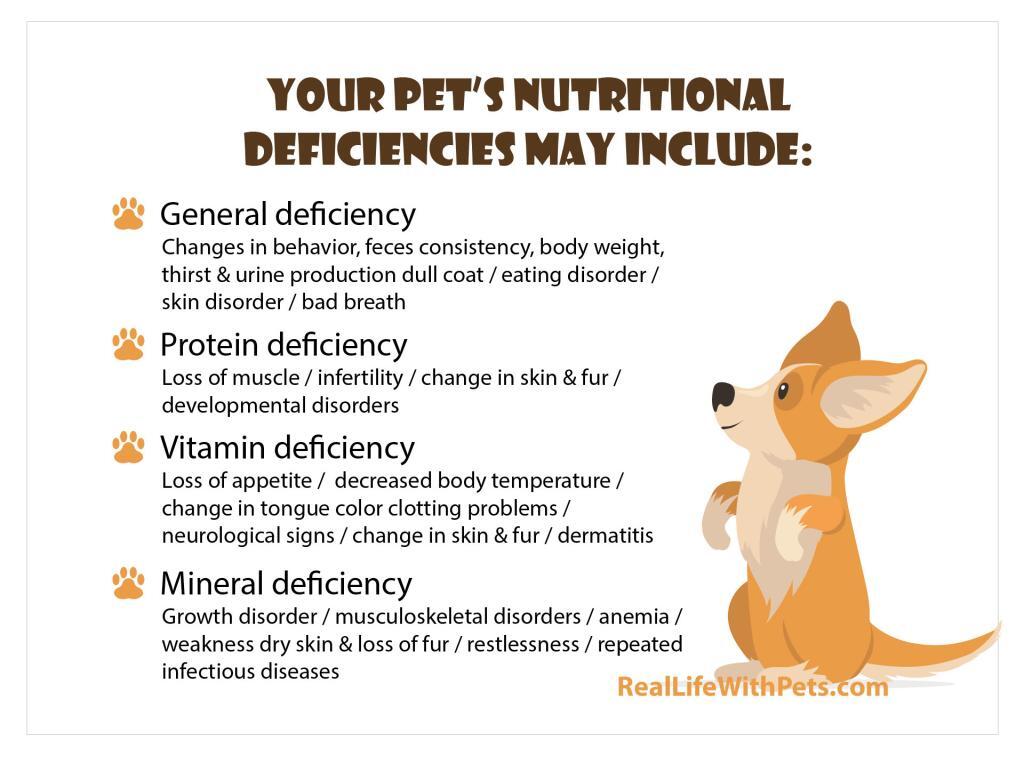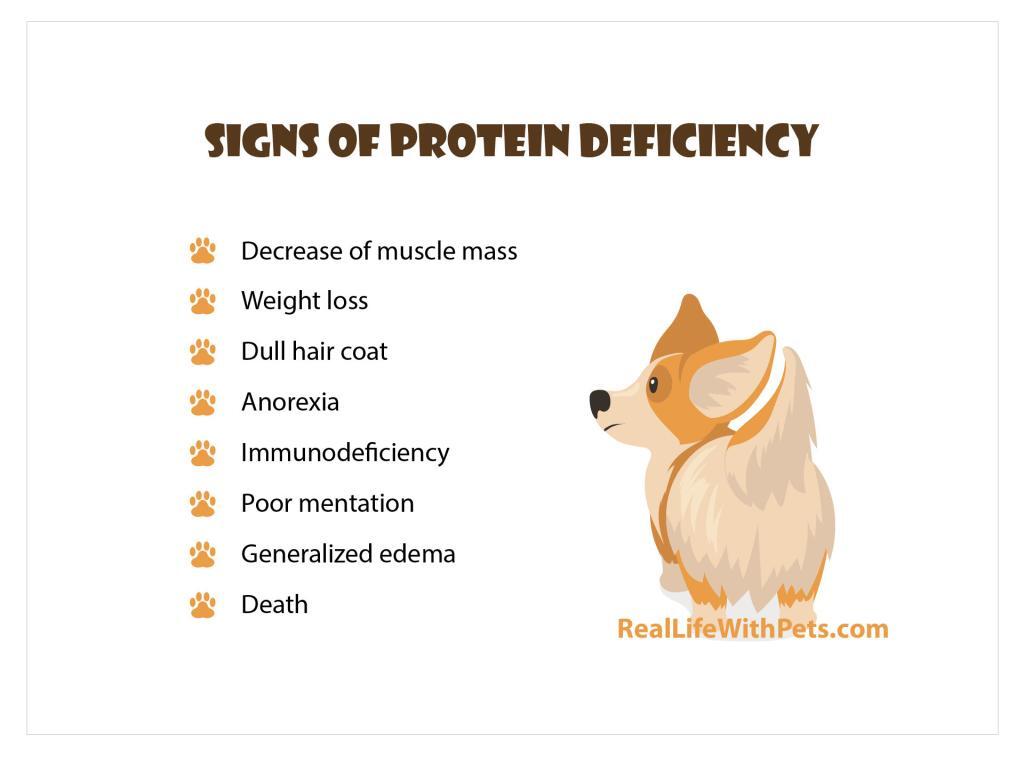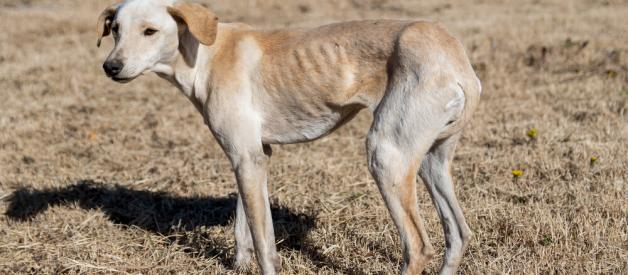Table of Contents
Knowing the main symptoms or signs of a systematic nutritional deficiency in your pet can save them from health problems and make your pet’s life joyful again. Lack of nutrients occurs when an animal needs vitamins or minerals. It leads to a general deterioration in the body’s condition and can lead to the emergence of chronic diseases. In addition, the pet’s immunity decreases, and it becomes susceptible to different infections and disorders.
Our dogs need a diet that will give them all the nutrients they need, but what if we don’t provide them with everything they need? Unfortunately, pets cannot tell us what they are missing. Therefore, loss of activity in a pet, dull fur in dogs, or loss of whiskers in cats can be symptoms of a severe nutritional deficiency. The problem of nutritional deficiency in a pet is widespread and must be solved by comprehensive treatment.
![Trace minerals your dog needs [Восстановлен]](https://reallifewithpets.com/wp-content/uploads/2021/11/trace-minerals-your-dog-needs-1024x764.jpg) What Are Nutritional Deficiencies?
What Are Nutritional Deficiencies?
The following are what your fur-friend needs for his day-to-day survival:
- Water. For hydration and rehydration.
- Vitamins. For strong teeth, healthy skin, healthy body organs, increased energy, etc.
- Minerals. For the proper development of cartilage, bones, and nerve functions, good transportation of the blood in the bloodstream, hormone production, fluid balance regulation, etc
- Protein. For repairing and building muscles and body tissues, forming new skin cells, energy production, hair growth, boosting the immune system, etc.
- Fats. For proper absorption of fat-soluble vitamins like A, D, K, and E, for appropriate production of prostaglandin (a hormone that helps reduce inflammation), for a shiny coat, etc.
- Carbohydrates. For adequate energy, it can be a source of heat when metabolized, cab can aid in weight management, help control the blood’s glucose level, etc.
If your pet is low in even one of these for a long time (half a year or so), it can prevent your dog’s body from functioning well; this is where nutritional deficiency comes in.
Nutritional deficiencies are hard to tell, especially if your dog looks happy and healthy. But long term deficiencies that have not been solved may significantly affect your dog, leading to more severe health issues.
Symptoms of Nutritional Deficiencies
How do you know if you are feeding your pet right? There are already proven methods for determining what your animal needs in a diet.
Note that nutrients for dogs may differ from the nutrients for cats. Therefore, you need to pay extra attention if you have both pets. The main task is to determine what kind of nutrient deficiency led to the deterioration of the pet’s health and replenish the missing elements with the help of supplements.

General Symptoms
Several basic signs can help identify a lack of nutrients in the animal’s body. For example, you should change the type of food and eating habits or add vitamin-containing treats when the seasons change. But if you are unsure, you should contact a specialist and show your pet to them.
The main symptoms are:
- constant changes in the pet’s behavior;
- decreased activity for no apparent reason;
- fur problems or the appearance of all sorts of inflammation and diseases;
- stool problems.
Today, the pet food industry is ready to provide you with a wide variety of special powders and tablets to replenish the loss of vitamins and minerals in animals. But the safest way is to consult a specialist.
Energy and Protein Deficiency
Lipids and proteins have an essential function in the body of any animal. Fats are responsible for maintaining energy balance. Proteins perform a regenerative function for tissues and are involved in animal immunity. Therefore, puppies and kittens must eat the right food rich in fats and protein from their first days. In this case, your fur friend will grow and develop properly.

The main symptoms of energy and protein deficiency are:
- a sudden change in the body weight of the animal;
- improper development, developmental disorders, disorders from birth, or congenital like orthopedic disease, skeletal abnormalities, etc.;
- frequent infectious diseases;
- decreased muscle mass or increased fat deposits;
- excessive shedding, skin and coat will appear dry, flaky, and dull;
- dry coat;
- inability to reproduce: absence of heat cycle, too low sperm count, abnormal ovulation;
- recurring diseases due to immune deficiency.
Such symptoms may indicate seasonal deficiencies in proteins or a decrease in temperature when the animal’s body begins to spend more energy warming up.
Vitamin Deficiency
The animal’s body needs substances such as vitamins in small doses. But the pet should receive them regularly. Vitamins are vital microelements.
The main signs of vitamin deficiency in your pet are:
- decreased activity or loss of appetite;
- skin problems;
- the animal’s tongue may change color;
- the animal’s mood is nervous and unstable;
- changes in the skin and coat;
- a sudden decrease in body temperature;
- blood clot problems.
Excessive vitamin intake can also harm the pet’s health. Therefore, you should carefully monitor the animal’s diet or use only special supplements and pay attention to the dosage indicated on the package.
Mineral Imbalance
Minerals are another class of microelements that can cause harmful effects when accumulated in the body. But the persistent lack of one of them in your pet’s diet can lead to chronic deterioration in the animal’s condition.
The main symptoms of a lack of minerals in the body:
- slow or abnormal growth of the animal;
- constant infections or their recurrence;
- nervousness or anxiety;
- muscle weakness;
- anemia, tiredness, pale gums, fatigue, some bruising on the skin, dark stools;
- lethargy, weakness;
- dry skin and abnormal shedding;
- growth disorders such as severe obesity, abnormal posture, bowed legs, painful joints, hip dysplasia, etc.
Addressing this mineral deficiency problem can lead to changes in your pet’s diet. It is better to start changing eating habits gradually so that the stomach and intestines can get used to a new type of nutrition. To do this, you may take a special soluble powder with microelements.
Carbohydrate Deficiency
Carbohydrates are known as macronutrients, and their leading role is to provide energy to the active and curious fur friend. A dog who lacks carbohydrates will become tired and weak; his body will begin using fats as a source of energy. Unfortunately, the fats used as an energy source create ketone bodies known as metabolic wastes and are harmful to the body.
How to know your dog has carbohydrate deficiency? His breath begins to smell like acetone.
Home Treatment For Nutritional Deficiencies
If a nutrient deficiency is noticed in time and your pet feels good, you can eliminate the simple symptoms of a lack of elements at home.
What you should do:
- Check your pet’s diet. Homemade food is not as rich in protein and vitamins as professional pet food.
- Constantly monitor the condition of the pet’s hair coat and skin.
- Give them treats from a pet store sometimes. As a rule, such delicacies contain appropriate doses of the necessary elements. You can read about this in the product description.
- Ensure that the animal’s food is correct for its breed, stored in the right place, and the expiration date has not passed. A balanced diet will help you avoid problems with a lack of vitamins in the diet.
The lack of nutrients in the pet’s diet should be eliminated at the earliest stages. A neglected case can lead to irreversible fatal diseases. You can avoid this if you care about your pet’s diet from early childhood, do not give toxic products, and fight parasites in time.
How to Treat Nutritional Deficiencies in Pets
Proper nutrition for your pet will be the foundation of their health, activity, and longevity. Therefore, choosing pet food and supplements, you should always consider:
- The individuality of the animal species and the unique needs of their breed. The chemical ingredients in the pet’s food and the pet’s nutritional requirements may not coincide. Then the food rich in elements will be useless for the animal.
- Correct feeding. Do not overfeed your pet. But it is necessary to check the dose of essential elements the animal receives daily.
We should note that identifying one or more symptoms will not always lead you to correct changes in the pet’s diet. Some symptoms may indicate several problems in the diet at once, or vice versa. This may be a seasonal reaction of the animal to a lack of vitamins and omega fats. In any case, taking the animal to the vet is better and let the professional check your pet.
Vitamins, Feed Additives, Pet Treats
Many pet vitamins and supplements have been developed to fight this problem. They are added to your pet’s diet to increase the intake of essential vitamins and minerals. They are produced in convenient packaging in the form of tablets, powders, or liquid drops.
Conclusion
You have seen that a lack of nutrients in an animal’s diet may lead to serious health problems that you can solve with special additives in pet food. Use only pet nutritionist-recommended licensed supplements.
FAQ
What are the Symptoms of Poor Nutrition?
The most common symptoms are changes in animal behavior, decreased activity, or deterioration of the coat.
What Is the Most Common Nutritional Disorder in Animals?
Obesity is now the most common nutritional disorder in animals in the United States. At least half of the cats and dogs in the United States are overweight to obese.
How Do You Know If Your Pet Needs Supplements?
The animal’s behavior changes, and you may notice skin or fur problems.
How to Be Sure Your Animal Has Enough Vitamins for Pets in Food?
The animal’s usual behavior, the natural color of the tongue, normal activity, and the absence of skin problems indicate that your pet is receiving the right amount of vitamins.
Where Can I Buy Supplements for Pets?
There are certain stores and websites. You can also ask your veterinarian for advice in choosing the most suitable nutritional pet food.
What Are the Three Most Common Nutrient Deficiencies?
Iron deficiency. Iron is an essential mineral. Iodine deficiency. Vitamin D deficiency. Vitamin B12 deficiency. Calcium deficiency. Vitamin A deficiency. Magnesium deficiency.
What Can Poor Nutrition Cause in Dogs?
Poor nutrition can lead to many serious disorders in dogs, including obesity, emaciation, rickets, allergies, and fur loss. The food’s amount or quality frequently causes these disorders. Some medical conditions can also trigger them.
What Causes Dog Malnutrition?
This often happens when a dog is fed a homemade diet for a long time. However, a nutritional deficiency can also occur when dogs are fed poor quality commercial dry food, a commercial food containing nutrient excesses.
What Is the Most Common Nutritional Disorder in Cats?
Obesity is a nationwide epidemic for pets, affecting over 50% of American cats, pancreatitis, feline lower urinary tract disease (FLUTD), heart disease, and diarrhea.























